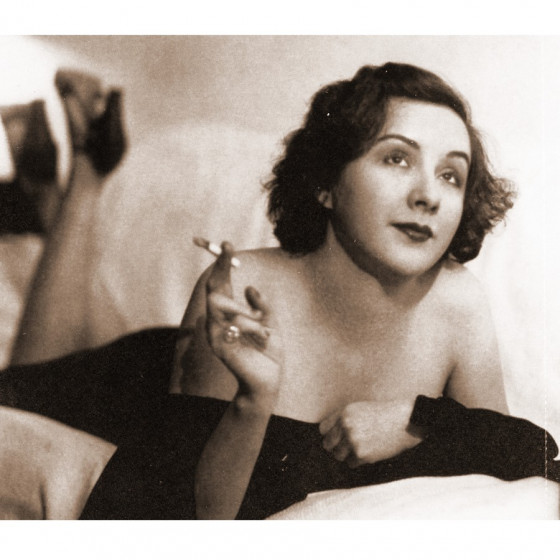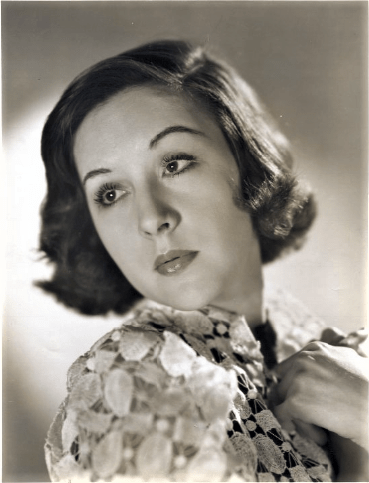Lee Wiley was born in Fort Gibson, Oklahoma probably on October 10, 1908 – that’s what’s on her tombstone but she would have said 1915.
She said that she was a Cherokee princess
And had the nickname of “Pocahontas”.
Lee Wiley was a tunesmith – like Billie Holiday and Peggy Lee – and on today’s show we feature two of her compositions:
Got the South in My Soul (1932)
Anytime, Any Day, Anywhere (1951)
She was also one the first vocalists to record albums (78s) devoted to the output of a single composer or writing team. These songbooks began in 1939 from Columbia Records and the first was devoted to the music of George Gerswhin, then came Cole Porter, Rogers and Hart and Harold Arlen songbooks. There were four ten-inch 78s in each set. This model was followed much later by Ella Fitzgerald and others.
She studied in Tulsa, OK, then moved to NY to pursue a singing career. Her first breakthrough was with Lee Resiman’s Orchestra in 1931.
She had a very unique style – very throaty, sultry, smoky and tender way of singing. She was influenced by Mildred Bailey and Ethel Waters and she went on to influence singers like Frank Sinatra, Peggy Lee, Billie Holiday and Julie London.
She was never the show-off. She used a sophisticated approach to a lyric and made the words as important as the music.
In the 1950s she made some amazingly wonderful recordings first with Columbia with Night in Manhattan (1951) with Bobby Hackett and Joe Bushkin and His Swinging Strings. Then a few years later at RCA Victor she made two more outstanding records:
West of the Moon (1956) with Ralph Burns and His Orchestra, and
A Touch of the Blues (1957)with Billy Butterfield and His Orchestra.
She did not record or perform much after the mid 1950s and as a consequence her recording catalogue is quite shallow. But nevertheless Lee Wiley is held in the highest regard by jazz aficionados. Her minuscule creative output was probably the result of the high degree of anxiety she experienced when performing.
She died in New York in 1975.
In his essential book on America’s great voices, Jazz Singing (1992) Will Friedwald wrote this of Wiley’s “West of the Moon”:
Even before Wiley opens her mouth on the first song of West of the Moon, the rocking first notes of Ralph Burn’s introductory vamp let us know that we’re in for something special. Then, when Wiley enters on the first few bars o the neglected Irving Berlin tune “You’re a Sweetheart,” we know at once that she and Burns will make good on that promise. Never on any of the twelve songs on this album does either one let us down…
Where Boswell swings hard and Bailey bounces, Wiley blows smoke rings, each note a puff that melts into wisps of vibrato. Rhythm is second to tone here, her burnished, bittersweet instrument dominating where the beats will fall in a much freer way than had ever been done before.
From Jazz Singing by Will Friedwald (De Capo Press, 1992) pages 84-85.
Appetizers


